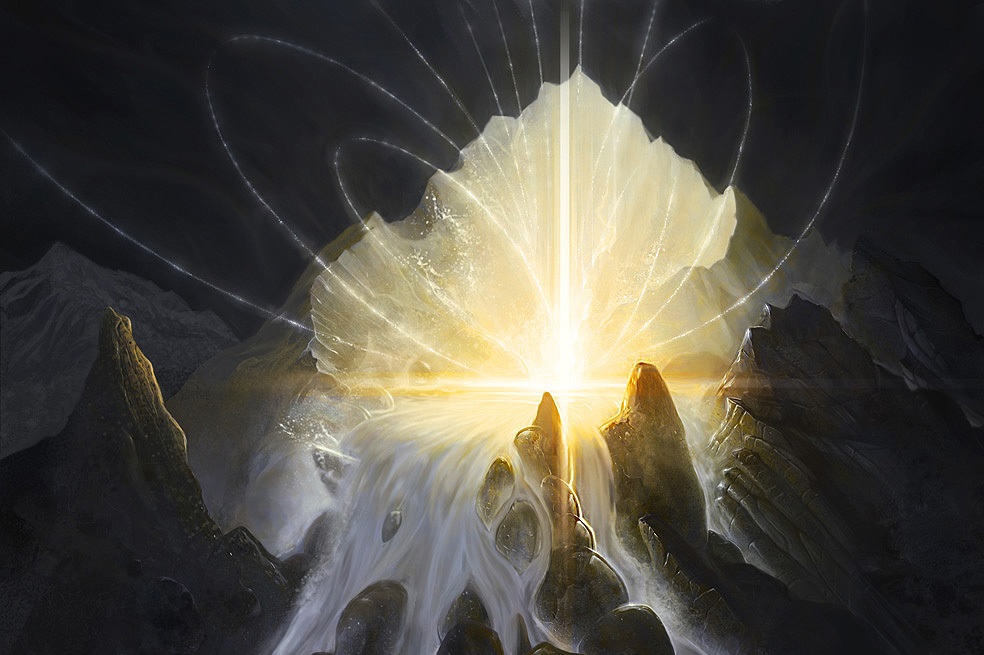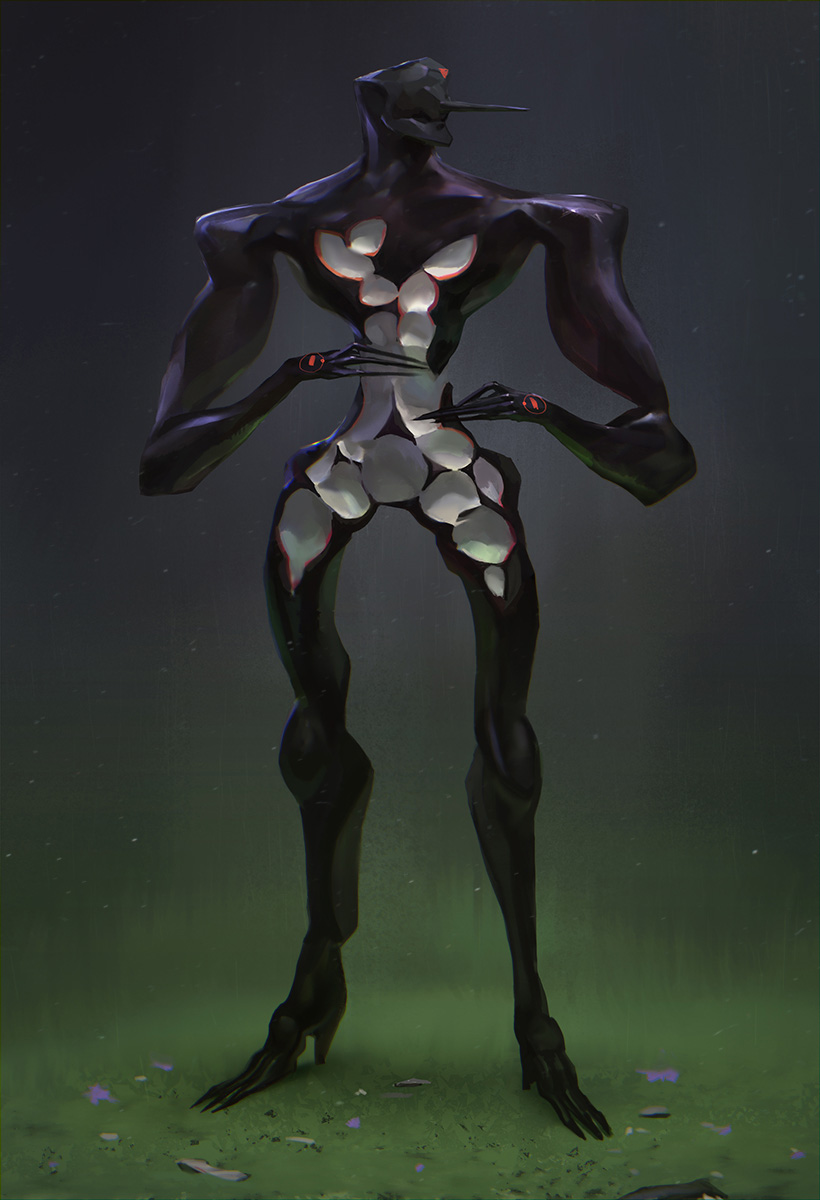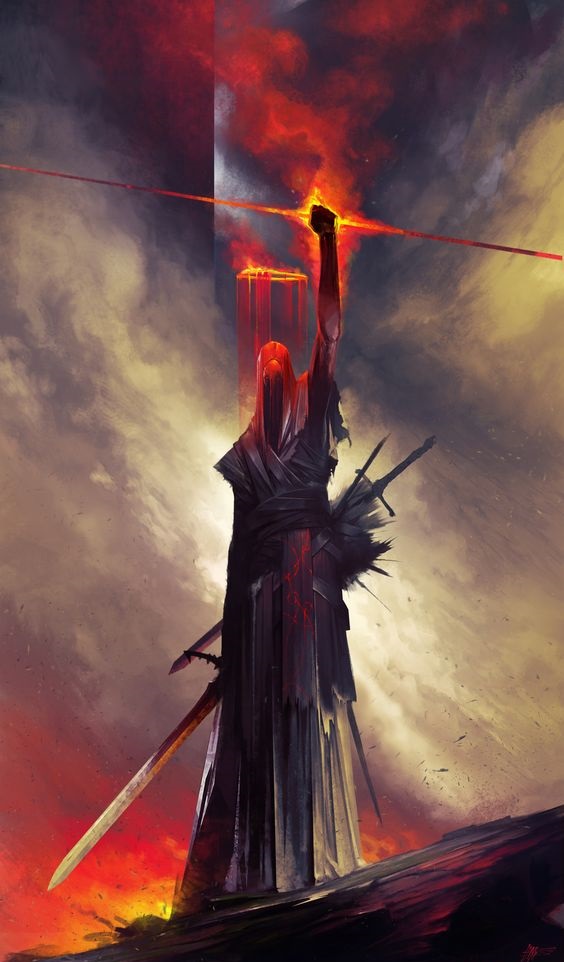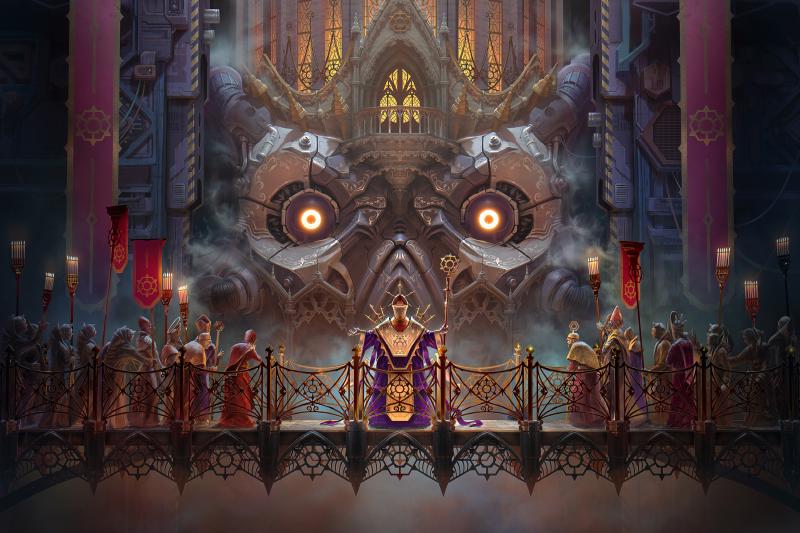“Gods die. And when they truly die they are unmourned and unremembered. Ideas are more difficult to kill than people, but they can be killed, in the end.”
— Neil Gaiman, American Gods

SSSo I’m going to start this post out a little differently and just come out and give you some meta-knowledge that we as designers, players, and readers know, but the individuals in the Trigate universe do not know about.
The Divine Children, the Gods of the Trigate universe, are the fragments of an artificial intelligence; a singular entity whose personality and functions have been divided into an infinite number of smaller components. There is more to this, a lot more, but this is what I will tell you going in.
But what we can talk about is how they got to that point.

WWWhen the Trigate universe was in its infancy, I of course had to have clerics and gods. It’s a fantasy roleplaying game staple. This started simple enough and worked just fine for earlier games. However, as I built upon the worlds, problems arose.
- Is the Goddess of Fire found in cultures on Sgèileàite different from the God-Mountain that is believed to house the origin of fire on C’alpulli?
- Should Clerics of one differ from the other?
- What happens if these two divine beings were to interact?
- Could a Cleric of the Fire Goddess become more powerful by also worshipping said God-Mountain?
These questions don’t have any importance to gameplay, so I ignored them.
However, all great worldbuilders have questions they are uncomfortable with answering, because they don’t have an answer or don’t want to do so out of fear that it will change things.
But, as I’ve stated before, Trigate is a universe built upon the idea of crossovers, so it was a topic I needed to approach one day.
I was initially trying to come up with ways in which a divine figure could exist in multiple places. I didn’t need a good reason, after all the stories of Gods on our planet can border on bizarre or hilarious. So I thought… what if they existed as concepts that attach to people worshipping something in their Domain? For instance, using the example above, the two individual Gods didn’t exist separately but were multiple parts of the same whole.
Have you ever come up with an idea and see it used in other media? That’s what happened to me on this topic. I remember the exact situation. Spoilers ahead!
It was 2014, and I was playing a pre-release version of the RPG Pillars of Eternity. There’s a certain point in the game where if you make certain story choices, you have the truth of the Gods of Eora revealed to you: Originally, there were no Gods. So, the first people of this world created them so they could keep civilization from destroying itself.

That’s when it clicked in my head how I could make this idea work. Funny enough, it changed everything… the fear that worldbuilders have. But… change can be good! Here, I think it was.

The Gods wouldn’t be the individual facets found across the planes. Instead, these individual facets, even across varying cultures on a single world, are consubstantial to each other and different parts of the whole. If you’re familiar with Christian theology, we could see it as homoousion, or how the Trinity is different but simultaneously the same.
In this way, the God of Fire could be a female Bone Skink on Sgèileàite but be represented by an actual physical location on C’alpulli and be different representations of the same being. When Clerics would worship one of these, they are effectively worshipping the same deity.
IIIn the Trigate universe, theologians of various faiths and worlds would compare, argue, debate, and contrast their religious beliefs unaware of this. It wasn’t until the Murder of Hope, an event where the Divine Child of Hope was utterly destroyed and absent until coming into existence again twelve years later, that theologians even considered that maybe there is a connection across the planes between the deities they worship.
Next time I write on this topic, we’ll discuss how the concept of the Divine Children came about and the conflicts and changes such discoveries wrought across the planes.
“Is man merely a mistake of God’s? Or God merely a mistake of man?”
— Friedrich Nietzsche
